Dan Michaelson and the Coastguards - Interview
by Benjamin Howarth
published: 9 / 8 / 2014
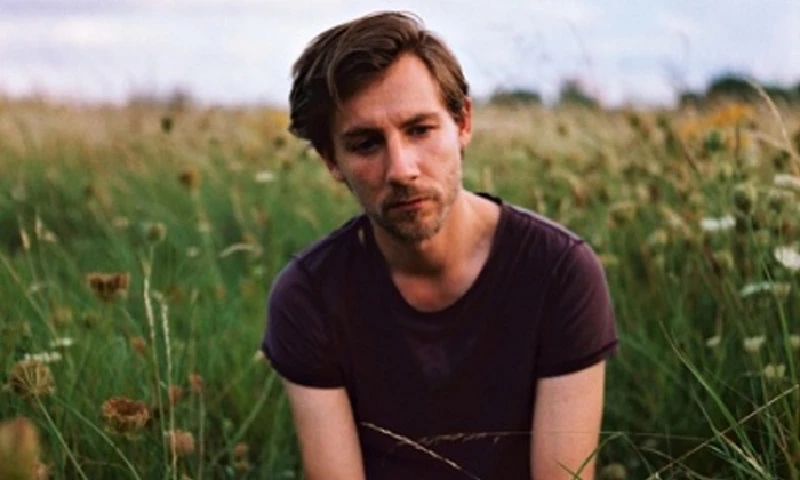
intro
Ben Howarth speaks to critically-acclaimed London-based singer-songwriter Dan Michaelson about being back with his band the Coastguards after two solo albums, and his just released latest album, 'Distance'
Having heard Dan Michaelson sing, you'd never mistake him for anyone else. His typical register is somewhere between a crackle and a croak, making those notorious whisperers Bill Callahan and Kurt Wagner sound like full-throated crooners by comparison. And yet, his songs come with a natural tunefulness. They may be uniformly maudlin – but they are never bleak. On his exceptional new album, ‘Distance’, Michaelson may have perfected his craft – a cinematic haze gives romance to an album of sad, but never bitter, break-up songs. He first came to public notice singing and writing songs with Absentee, whose stock in trade was uptempo indie rock. After their break-up, Michaelson decided to explore his love of soul and country. His first two albums with the Coastguards, a newly formed backing group, both contained some beguiling tunes, and deservedly won comparisons to Lambchop. The second of those, 'Shakes' has firmly established itself as one of my all-time favourite records. Then Michaelson then decided to explore just how far he could take minimalism. He recorded his next, 'Sudden Fiction', completely solo. Gone were the soul-influenced chord progressions of 'Shakes' and in their place were bare strokes of acoustic guitar. It worked – earning him a place in the ‘Mojo’ Album of the Year chart (albeit, mysteriously, more than a year after its release). Last year, the Coastguards were back on duty for 'Blindspot', but the experience of his solo record clearly gave him the confidence to keep his voice and words centre stage. Instead of building songs around guitar lines and drum rhythms, the arrangements were clearly built around the songs. On 'Distance', the same approach applies, but you get the sense of an even greater confidence. What emerges is an intense listening experience and a sound that is unlike anyone else. It does not seem to have gone unnoticed. 'Distance' has had the best press of any of Michaelson's records, already receiving a glowing, full-page review in ‘Uncut’ and glowing write-ups in ‘Mojo’ and ‘The Guardian’.. A month or so before the album was due to come out, and before the aforementioned reviews hit the shelves, I caught up with Michaelson for his second interview with Pennyblackmusic, as he sat in the garden of his local pub in Hackney. PB: So, the obvious first thing to ask about is your new album, which is about to be released. DM: I'm pretty excited. I know that is quite a stock answer, but if you actually manage to get to the point where you have actually finished something, you just want it to be out there as soon as possible. I didn't make this album just for myself. I made it for other people to listen to – I'm really keen to get it out into the world. This record was made in a way that is perhaps not that unusual, but was unusual for me. We had a very long gestation period where I figured it all out and then a very, quick, exciting, impulse-based recording. And that has made it feel especially fresh to me. PB: You recorded the album in May, and it will be out in August, which seems like an especially quick time between recording and release. DM: Yeah, I know, hardly any time at all really. I think it was only three days after the recording was finished that I sent it off to have promo copies made. PB: That's quite novel. So often I speak to bands about an album they've just released, but for them it is already more than a year old, and really, they are thinking about the next one. DM: I've been through that as well. I understand why sometimes that has to be the way, but I am lucky to be in a position now where I can cut out all the messing around. I've been getting out an album a year for the last few years. There was a slightly longer period in between these two albums than the one before that, but still fairly quick. PB: Some bands seem to be lucky if they get something new out every three years... DM: I don't know how they deal with it. It would drive me bonkers. I don't really want to the person who is always an album ahead. I want to be able to talk to people about the record I have just made, and for it to be almost as fresh to me as it is to anyone else. PB: So, how have you got into the position where you can release things so quickly. You self-released 'Shakes' and 'Sudden Fiction', but since then you've been working with a label again... DM: I have a label, but they are really accommodating and I think, also, they do trust me. Maybe also I've gotten to be really bossy in my old age. I'm lucky – and I think I'm quite organised as well. PB: On previous releases, you have done special editions, which are hand-made, which are available direct from your website. Will you be doing that again? DM: Yes, I have been working on that for the last few weeks actually. In the last few days, I have been covered in paint screen-printing all the vinyl. There is this amazing place in Portland that does album packaging specifically designed for screen printing, so I had everything shipped over from them. As soon as that arrived, I got cracking. I am doing a special edition of 100 vinyl copies and 50 CD copies. It is quite time consuming, but I think it is important. I remember when it was an important thing to buy a record. And, in a way, if you are inclined to buy a record these days, it is an even bigger gesture than it was before. PB: It seems like, if bands are going to go to trouble of making physical versions of records these days, they feel they may as well make them look nice. Twenty years ago, CDs generally weren't much to look at... DM: It is quite hard to make a CD look nice in a plastic box. I've tried. I remember spending weeks sitting at a computer trying to make it look great, but somehow I always end up being disappointed. I feel that there is something missing when you can just reproduce the same thing over and over again. With my screen prints, some of them will have little bits missing, or they will end up with finger prints or I will spill wine over them or something. And then I feel more attached to it. I don't know why, but I like it more. I just feel that if someone goes out of their way to buy the record they deserve something I've put effort into getting to them. PB: I remember the last time I talked to you, you had just released ‘Shakes’ – where every copy was screen printed. At that time, I think screen printing was something you had just taken up, and you said that it was fun, but that it could get a bit repetitive. Is it something you've practised and got better at, or is it just how you like to make records? DM: I think I get worse! I enjoy it the same – I definitely don't get any better, I just persevere. I think that's because I have tried a new idea each time. I wanted this one to look simple, and it's very text based. But, for the actual print, that became a lot more complicated than any illustration. There are days and days of endless repetition, but with some form of mistake in every one. But you get that feeling of satisfaction when it is finished. It is similar to making a record – there is a lot of 'backstage nonsense', but you get to the end of it and you can look back on some wonderful moments, and some horrendous moments where all your faith goes out at the window. At the end, you think, “Well, this is good. I'm happy. Let's get it out!” PB: I've had this record for only a few days, and I know that the last two have grown on me – I feel it took a while to really appreciate them. So I'm not sure if my impression of the new record is right. But it feels different to the last one, but I'm not completely sure yet why. I was wondering if there was anything you'd consciously changed. DM: I tried not to plan the musical side so much. I wanted to be less controlling, and try to do it quickly – not in the sense of rushing, but by trusting the gut instinct of me and everyone I was working with. Also, I didn't want to hold back on the potential of any song – I wanted a slow song to be as slow as it could be, and the fast songs would be as fast as it could be. I wanted to get carried away with this album – so with each song I wanted to push them as far as I could, and not get held back by over-thinking them. PB: It feels more like you are part of a band, whereas on the last record, it felt more like you had a band who were adding little bits to your songs. DM: That's definitely what it was. The last album, I effectively recorded it as a solo musician, and people dropped by and added a few bits. This time, we all get together and made them as good as we could get them. PB: The band this time is a mix of people who've been playing with you for a while, and then some new – yet familiar – faces... DM: I guess Johnny Flynn (of '… and the Sussex Wit' fame – PB) is the newest person to play with me as a Coastguard. That came about because we did a score for a film together last year, and we are working on some more music for later in the year. I don’t know. I just like the guy! And when you like people, you want to have them around more. That's how I feel about my whole band – I'm just in love with the whole group of men (Laughs). Romeo (Stodart - PB) has always been a fleeting presence in my life. He was the original bass player in my first band, was on the very first album and then he got quite busy selling lots of Magic Numbers records. He's a friend, and this was a nice opportunity to come back together. Then, Gabriel (Stebbing – cello) has been on the last two or three. And Horse (pedal steel/guitar) and Laurie (Steel – piano/guitar) are now ever presents. I couldn't conceive of ever making a record without them now. PB: How did you go about agreeing the arrangements? Did you give them time to work on songs on their own? DM: I did the opposite of give them time. I didn't really even let them hear the song before we were recording. We did one rehearsal the night before we started recording, and then we went straight into it. I've done eight albums now, and I've just found that when you rehearse songs for weeks at a time, often people get bored with their parts and start fiddling around. By the time you start recording, you've completely forgotten the first impulse. This time, I wanted to capture and hone those first impulses. The first idea is usually the best. PB: And you've worked with a new producer this time. DM: Yes, Ash Workman (best known for his work with Metronomy and the Klaxons – PB). I've worked with Ash before, when he was an assistant. He's still young now, but, when I first worked with him on an Absentee record, he was an eighteen year old assistant working for another producer. Now, we have got together as a proper double act. The most important thing he brought, especially in the context of what we have just been talking about and how I wanted to do this record, is that he is super-quick and super-clever. The last thing you want in a recording session is to have a really good idea, but then have to spend four hours trying to get that sound. You can spend so much time trying to describe sounds, these things that don't really have a language. But he just very quickly got it – which meant no-one starting drifting and losing the moment. So, really, what he brought is just being incredibly good at his job! PB: That's quite a nice thing to have! How long were you recording for? DM: In total, about two weeks. We did the bulk of it in a few days, then fussed for five days and panicked for two days. And then it was done – fairly quick. PB: You have always done fairly short albums, just a handful of tracks. So I was wondering why, basically, and what the appeal of them is? DM: There are a few reasons, I suppose. One is that I'm just not keen on long records, even records that I really love, I feel that there is always a point where you just lose interest, and that's no reflection of how good the songs are. Secondly, I just believe in the concept of an album. I want it to be a body of work that all makes sense together, and I don't care how many people complain that it is too short. All I want to hear from an album is a group of songs that completely make sense together. That is all I care about. There are very few reasons to make albums these days. So, for me, I want to make an album that I want to listen to, and that feels like a world in itself. If there is a song there that is only there because people feel an album should be a certain length, to me it only spoils the record. I'd much rather hear one where, from the moment I put it on to the moment it stops, I just want to be immersed in this world. I just hate that experience being disrupted. I think it is exactly the same reason why I don't like 3D films. I go to the cinema to enter a world, and when something jumps out at my left, I look at it and then I just see someone eating my popcorn. Immediately, I'm out of the film's world and I'm in a cinema with a load of people. It's the same with albums, I want to be immersed in something. and I don't want anything to take me out of it until whoever makes it decides it’s over. PB: I've always enjoyed the contrast between your albums – which are always quite intense, emotional experiences – and everything else you do as a band. Your website and the way you promote your records seems like to be pretty all you taking the piss, either out of yourself or the music industry. DM: I suppose music is one side of my life. The language of sadness, love and emotion is what I love about music – I don't find the same excitement in trying to express the happier side of life. But that is just one side of me. I couldn't survive just being that bleak. And, when I'm not involved with music, I find most things amusing. The idea of writing about the things I sing about in a blog or a tweet would be totally bizarre. But I've found a way to express all the things I found ridiculous and amusing. PB: In particular – I think because, as someone who reviews records, I recognised so many of my bad habits in it – I loved the blogpost where you reviewed all the reviews of 'Sudden Fiction'. DM: I thought it was about time. It just occurred to me why I shouldn't mention what I thought of their reviews in return. You send these records out, and then you just sit back and people say whatever they want. It just amused me to think that a reviewer might become reviewed. Often reviews are something that never get acknowledged, they just go up and that's it. It's not something I will make a habit of doing, but once in a while is okay. But it is just me entertaining myself. PB: I suppose that lead me on to the next question. When I spoke to you last, ‘Shakes’ had definitely got some good reviews and acclaim, but it feels like since then you've had a lot more attention, especially in the monthly music magazines. You were in the ‘Mojo’ Album of the Year list, for example, although, strangely, not in the year the record actually came out! I was just wondering, really, if you had noticed much difference from this extra attention... DM: That's a good question. I don't really know. It's definitely made me feel better. I think at the time of ‘Shakes’ I would have said that I'm not just doing this for me – I want people to hear it. So, having people comment on the records makes me feel like the music isn't just disappearing. It's like a bigger version of the feeling you get when you say 'good morning' to someone on the street. You just want to hear something back... PB: Finally, I was just wondering if you had plans for the year that the readers of Pennyblackmusic should know about... DM: I'm doing more and more work to score films, which is a really exciting thing – my kind of music seems to sit well with this. It's a really enjoyable challenge. And then I thought I might do a fun record – or maybe a fun EP at least, just to let off a bit of steam. That is something that might happen quickly. Also, I'm looking forward to releasing a record that I produced over a couple of months last year for Melinda Bronstein, from my old band Absentee. That should be released quite soon, I hope. PB: Thank you.
Band Links:-
http://www.danmichaelsonandthecoastguards.co.uk/https://www.instagram.com/danmichaelson/
https://www.facebook.com/danmichaelsonandthecoastguards/
https://twitter.com/danmumbleson
Picture Gallery:-
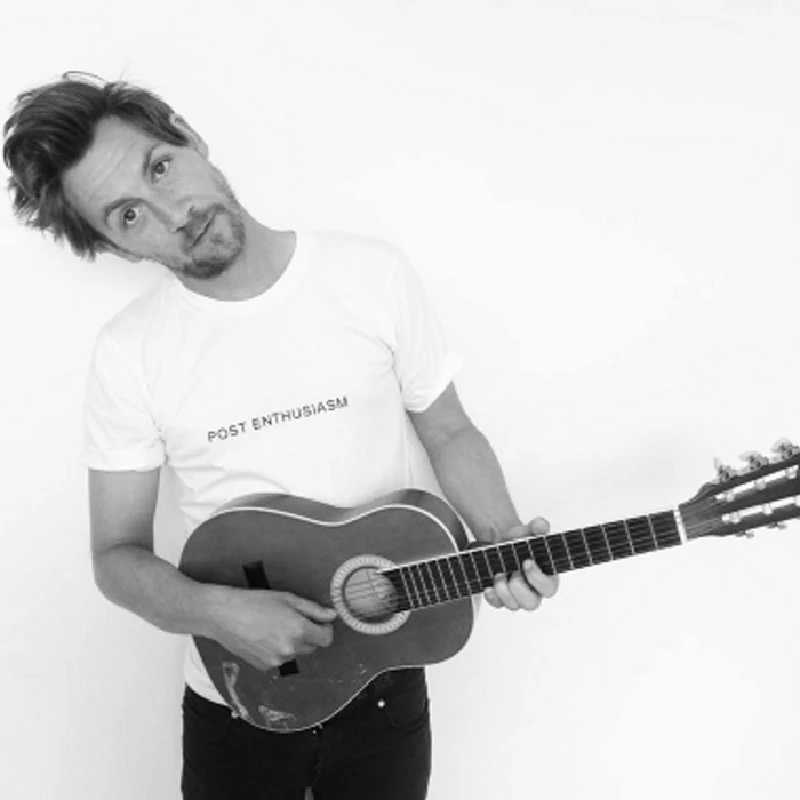

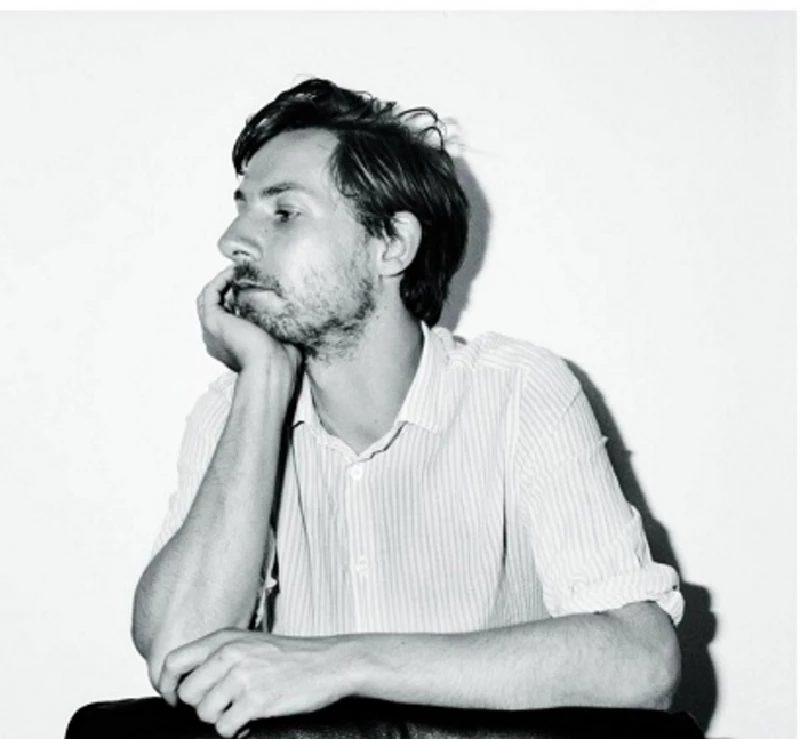
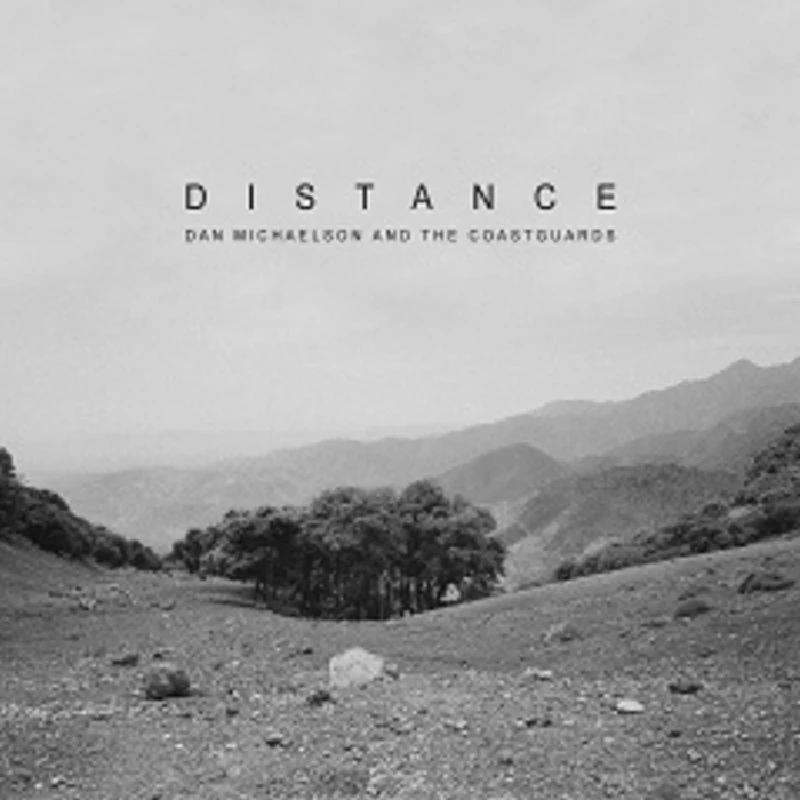
interviews |
|
Interview (2011) |
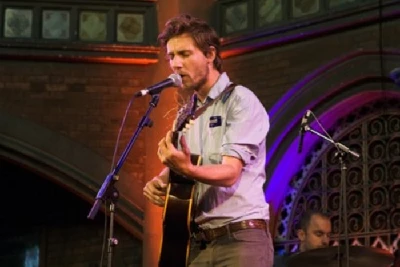
|
| Americana musician and former Absentee frontman Dan Michaelson talks to Ben Howarth about his second solo album, 'Shakes' |
soundcloud
reviews |
|
Memory (2016) |
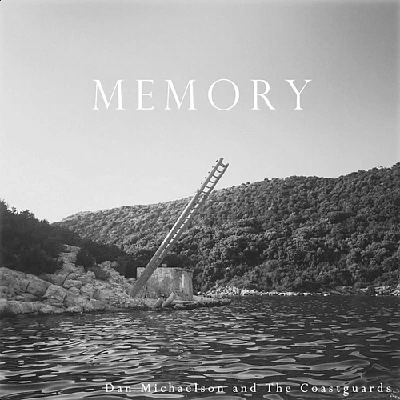
|
| Melancholic but haunting mini-album from London-based singer-songwriter, Dan Michaelson and his band the Coastguards |
| Blindspot (2013) |
most viewed articles
current edition
Carl Ewens - David Bowie 1964 to 1982 On Track: Every Album, Every SongArmory Show - Interview with Richard Jobson
John McKay - Interview
Colin Blunstone - Thalia Hall, Chicago, 16/7/2025
Billie Eilish - O2 Arena, London, 10/7/2025
Bathers - Photoscapes 1
Visor Fest - Valencia, Spain, 26/9/2025...27/9/2025
Loft - Interview
Sir Tim Rice - Interview
Robert Forster - Interview
previous editions
Manic Street Preachers - (Gig of a Lifetime) Millennium Stadium, Cardiff, December 1999Heavenly - P.U.N.K. Girl EP
Beautiful South - Ten Songs That Made Me Love...
Peter Perrett - In Dreams Begin Responsibilities Interview Part One
Boomtown Rats - Ten Songs That Made Me Love....
Oasis - Oasis, Earl's Court, London, 1995
Trudie Myerscough-Harris - Interview
Coldplay - Wembley Arena. London, 16/8/2022
Prolapse - Interview
Pixies - Ten Songs That Made Me Love...
most viewed reviews
current edition
Davey Woodward - Mumbo in the JumboSick Man of Europe - The Sick Man of Europe
Lucy Spraggan - Other Sides of the Moon
Suzanne Vega - Flying With Angels
Amy Macdonald - Is This What You've Been Waiting For?
Phew, Erika Kobayashi,, Dieter Moebius - Radium Girls
Bush - I Beat Loneliness
Blueboy - 2
Alice Cooper - The Revenge of Alice Cooper
Cynthia Erivo - I Forgive You
Pennyblackmusic Regular Contributors
Adrian Janes
Amanda J. Window
Andrew Twambley
Anthony Dhanendran
Benjamin Howarth
Cila Warncke
Daniel Cressey
Darren Aston
Dastardly
Dave Goodwin
Denzil Watson
Dominic B. Simpson
Eoghan Lyng
Fiona Hutchings
Harry Sherriff
Helen Tipping
Jamie Rowland
John Clarkson
Julie Cruickshank
Kimberly Bright
Lisa Torem
Maarten Schiethart